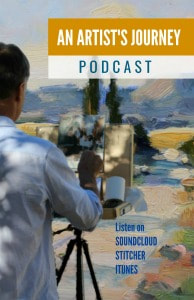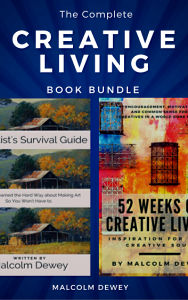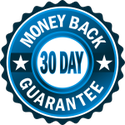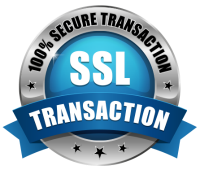|
Are you an artist, small business owner or entrepreneur? If so then you have had to think about keeping your finances in order. You are thinking about tax returns, bookkeepers and how to make a profit. That is a lot of stress. Where do you start? Well you are in luck because my guest on An Artist's Journey Podcast episode 46 is dedicated to help you gain your financial sanity.
Read on to discover how you master your finances today. Artists in Business Take Note
Success as an artist in business is not just about creating excellent work. I will never forget how it feels to face a month end with nothing in the bank. Debts growing as you scramble to make sales. This is not to make drama I assure you. Understanding your finances, your habits and your money goals are vital to success as an artist. Never be fooled by those who say it is all about the art. Those that suggest you are selling out.
The truth is that we all need to make a living. We also want to be free from financial worries. That is why a little education in finances, running a business and the idea of profit and cashflow are non-negotiable skills we all need. That is why I invited accountant Morgan de Klerk of Master Your Finances Today to be my guest on An Artist's Journey Podcast. Morgan will answer questions like:
Listen to the Podcast or watch the video. Books Mentioned in the Podcast: Without doubt education is the Number One difference between success and failure as an entrepreneur. These two books are worth adding to your collection. Start a Free course with Morgan today
TRANSCRIPT:
[00:00:21.550] - Malcolm Welcome to Episode 46 of an Artist's Journey podcast, it's great to be talking to you again. [00:00:27.330] - Malcolm This episode is especially for creative entrepreneurs. Anyone contemplating starting a small business or is running a small business or a side hustle or if you're thinking about even starting a side hustle. My guest today is going to help you get control of your financial records and help you earn and make more money by keeping your finances in order. She's an accountant and a finance expert, and she's passionate about helping small business owners and digital nomads manage their money. I'm sure this is something that resonates with most of us who are running a business of any sort and especially creatives. [00:01:12.220] - Malcolm And before we get started, I must mention that in the show notes, you can find the links to my special guest's resources and a free course that will help you get control of your finances. Right now on with the show. And let's meet our special guest. [00:01:32.380] - Malcolm Welcome, Morgan de Klerk. [00:01:34.300] - Morgan Thank you so much for having me. I'm really excited to be here. [00:01:37.330] - Malcolm It's a great pleasure. [00:01:38.320] - Malcolm Morgan I must tell everyone, I immediately noticed your Instagram profile, which was so professional, entertaining, and I thought, this can't be an accountant. [00:01:52.690] - Malcolm It's far too much fun. [00:01:57.040] - Morgan Too much personality (laughs) [00:01:58.480] - Malcolm Exactly. You obviously enjoy what you're doing. So I thought you'd be the perfect guest for all of us entrepreneurs who are worried about keeping our books and papers and finances in order. And that's pretty much each one of us. So let's start with with you. Tell us about who you are, where you are based, what you do. [00:02:24.100] - Morgan Well, Malcolm, it was great to connect with you on Instagram, and I actually love that. That's how we found each other, because I think that money is oftentimes such an intimidating topic, especially bookkeeping, accounting and taxes. And I just love being a part of changing that whole narrative to making it something fun and exciting and a part of your business that is actually going to take you to that next level. So, as Malcolm said, my name is Morgan de Klerk. [00:02:52.690] - Morgan I run a business called Master Your Finances, and we teach entrepreneurs and self proprietors how to do the bookkeeping themselves so that they can learn how to make financial decisions, prepare their taxes themselves and save a lot of money by not having to hire an accountant yourself. [00:03:13.000] - Morgan A little bit about my background. I am originally from the United States, as you can obviously hear in my accent, but I'm actually living in South Africa, just like Malcolm, so it's cool in the same time zone. I moved here when I was six years old. I went to primary school and high school here and actually met my now husband in high school. We started dating when I was 15. So we are high school sweethearts and I went back to the states for university where I got two degrees. [00:03:44.860] - Morgan One is in accounting and the other one is in international business. And then we did four years long distance during that time. So right after that was finished, we got married and we ended that long distance and we did some travelling around the world. And there I started teaching accounting to small business owners, fell in love with it, and have been doing that ever since. So it was really cool. I studied accounting and international business and I wasn't sure how the two of those were going to be combined. [00:04:15.580] - Morgan But now helping students from all around the world, we've got students from Israel, Turkey, Russia, the United States, Brazil, Philippines. And it's so cool to see how all of that has come together. And I, like Malcolm said, I just love what I do. And I'm passionate about helping entrepreneurs manage their money and lead them to the financial freedom that that brings. [00:04:38.380] - Malcolm Wow, that's fantastic. And, you know, the thing about business people, entrepreneurs, is we're all excited about the idea and what we do, in my case, painting and in others, it could be selling a product or service. It really doesn't matter. That's all we want to focus on. [00:05:03.040] - Malcolm So especially now after 2020 and and this year, and it's probably going to continue, people are looking to kick off their small business or the part time business to supplement income. The first step is never about the financial side of things, so let's have a look at it. From your point of view, for somebody considering starting something up, what should they do now to get, or to pave the way for their accounting or bookkeeping obligations? [00:05:46.810] - Morgan Yeah, I always say that by the time people come to me frantically looking for help, they're way too far into their business. And it really is something that you need to get in place right when you're getting started. And it doesn't have to be complicated. My main thing is if you're getting started is before you even pay anything out of business is to start to separate your business and your personal transactions from the get go. So we can talk about business registration later. [00:06:13.840] - Morgan But before you even get to that, you can just open another checking account, even if it's not a business checking account and specifically use that for your business. So any money that comes in, put it into that separate account and anything you pay to help your business run, take it out of that separate checking account. And that just makes things much cleaner. And then on top of that, you get a little spreadsheet, numbers page, Google sheet, Excel spreadsheet and just start recording. [00:06:43.490] - Morgan And every time money comes in for your business and every time money goes out. And obviously we're going to dive a little bit further into how you can make that easier and automated. But those are my main tips. If you're just getting started with a little higher side hustle and you need to get something set up. [00:07:00.700] - Malcolm So think positive, open a new check account and visualise money going in. [00:07:08.080] - Morgan Yes, [00:07:10.930] - Malcolm One of the other things that people often say to me is the whole thing about the structure of the business. And I don't know why that seems to be something that crops up. But it might be a good thing because I suspect most small businesses will be running as a sole proprietor. [00:07:34.270] - Malcolm But I see quite a few in my circle of artists, especially in the US, operating what's called an LLC. Perhaps you can just tell us a little bit about the difference. Is it important or should we just carry on as a sole proprietor? How is that going to impact us down the road? [00:08:01.060] - Morgan Yeah, and this is a question that I get a lot as well. And the first thing that I tell small business owners is don't stress about this. I was a sole proprietor in business for, I think two or three years before I even registered my own business. So it's really not something to get hung up about. But I'm glad that you're starting to think about that. And the wheels are turning in that direction because there are a few things to consider when asking yourself this question. [00:08:28.780] - Morgan And the main thing is something that we call limited liability. And that's actually what an LLC stands for, a limited liability corporation. And that's a fancy word for really just saying that it protects your personal assets. Should, God forbid, someone ever come and sue you and come after your business, it protects all of your personal stuff so that they can only touch your business assets so they can't take your house, your car, things like that. And another reason I like to be registered as a business is it also takes your business from that step of becoming kind of like a hobby or a side hustle into a business. [00:09:10.450] - Morgan And at the bottom of your website, you'll have like registered or LLC. And that really gives that professionalism and credibility when someone comes to you that you are a registered business, you are taking what you do very seriously and they can trust, you know, their work in your hands. But I mean, for tax time, if you are a sole proprietor, LLC, it doesn't change anything for tax wise. So it's really just that liability protection, if you ever get sued or something like that or you go bankrupt. [00:09:43.330] - Malcolm Right. [00:09:43.900] - Malcolm And somebody also said to me, listen, I'm just an artist. Um, what are the risks in that? [00:09:51.580] - Malcolm And I said, well, if you're having people come round to your studio for workshops. You know, somebody injures themselves. There are many ways to get into trouble. And it's just, well, it's worth considering. Limited liability is a good thing. And we mentioned briefly software or keeping a spreadsheet. And for somebody like myself who likes to fiddle with software and think that's going to be the answer, [00:10:30.300] - Malcolm Is it a good thing or is it a complication? Should we just put all our papers in a shoe box and look at them once a year? [00:10:39.720] - Morgan There's two ways you can keep track of your bookkeeping. One is on an Excel spreadsheet like we talked about, and then the other is getting on an accounting software like Quickbook's or Zero or Sage or something like that. And both are perfectly fine. It just depends on where your business is at. So an Excel spreadsheet is great if you're not making any money yet or you don't have a lot of capital or cash in your account. If you don't have a lot of transactions, if you have two transactions a month, you can definitely just type that on a spreadsheet. [00:11:12.330] - Morgan The problem with that is it's very easy to make mistakes. It's very easy to type something in wrong, human error, things like that. And it's also time consuming. [00:11:23.340] - Morgan So the benefits of software is even though you pay a small monthly fee and it usually is generally very small, especially if you're self-employed, it can automate this process in the background so your bank fees can automatically be filtered into the software and you don't have to pull the data. [00:11:42.900] - Morgan It's already there. And in fact, Quickbook's is my favourite accounting software. I've been on all of them and I've found it to be the most user friendly. And their customer service is also really, stood out to me above the rest. So I'm kind of a tried and true Quick books fan. But you can set rules in there so that if you have something that's coming in every single month, Quickbook's will start to learn that and automatically allocate that. So you don't even have to do anything. [00:12:10.980] - Morgan So it's like having your accounting system working in the background without you even touching a button. So I like to call it automating your bookkeeping because it's automatic. It runs for you in the past. It takes away that whole human error of you typing something wrong. And in the end of the day, it saves you a lot of time. So I'm a big fan of accounting software. If you can afford it. [00:12:33.900] - Malcolm I have to agree. [00:12:34.930] - Malcolm I use something similar for a few years. And the great thing is that when it comes time to hand over figures to a bookkeeper, you just tally up the category and write it down or whatever or export it and that's it. But just one thing that might bother some people is when they think about. Their bank information getting sucked from the bank account into this type of software. What are the risks? Is it risky? Should they just trust it? Is that a valid worry? [00:13:17.500] - Morgan I mean, in all my years of accounting and even working in a corporate business, I have never had that be a problem. I actually wouldn't even say that it is necessarily a valid concern. I think that these companies are so large, they have all of the measures in place. So from my personal opinion, I really don't think that that's something you should be worried about. I think it's perfectly fine for you to link them up. And yeah, we shouldn't be worried about that. [00:13:44.030] - Malcolm Yeah, I think the biggest worry is sitting, looking at a shoe box full of documents, not knowing what to do with them. [00:13:52.330] - Morgan Yeah, [00:13:53.950] - Malcolm I was looking on your website and one of the things you're offering to people is: One year's worth of bookkeeping in one hour, how they can handle a year's worth of bookkeeping in one hour. Just tell us a little bit about how that works and and what you do. [00:14:16.130] - Morgan Yeah. So this is actually kind of embarrassing story. In 2020 we had a baby. It was a pandemic. I mean, we're still in a pandemic now, but it was just a crazy year and I actually didn't do any of my bookkeeping in the year. And then, so embarrassing to me, because I tell people, you know, you need to do it regularly. But I myself, I was like it was just the thing that got pushed to the end of the list every single month. [00:14:40.670] - Morgan So tax time came now at the beginning of the year, and I hadn't allocated or written down any of my income or expenses. [00:14:48.590] - Morgan So being a busy mom and somewhat lazy, I was like, I need to do this as fast as possible. So to do my own taxes, I found a way to do it as fast as possible. And I ended up doing all of my bookkeeping for one year and filing my taxes in just 30 minutes. So I was like, wow, this is actually a really good system and I feel like it would work. It was just so easy. [00:15:13.550] - Morgan So that's how this product came to be. It's called Expedite Your Books, and it is a mini course that is for people in the same situation that I found myself in. You need to file your taxes and you haven't done any bookkeeping for the year past or you're not sure if your bookkeeping is correct. So it comes with just a really quick 15 minute video tutorial where I literally do my bookkeeping and taxes right alongside you. You follow me word for word and you should have everything done in under an hour. [00:15:45.860] - Morgan That is my guarantee. [00:15:48.710] - Malcolm That's fantastic. And I just must mention, I'm going to have links to all of these products and services in my blog and video, et cetera, so anyone can check that out very quickly. [00:16:03.440] - Morgan And something to add there, too, is that I wasn't I didn't want to get on something like Quikbook's yet because I have so few transactions going through my accounts. So this mini course is actually just on Excel. So there's no added fees or added subscriptions that you'll need to pay for. Along with that, it's one hundred percent on Google sheets or whatever is already on your laptop and you can just run with the programs you already have. [00:16:26.750] - Malcolm Well, let's have a look at our Start-Up entrepreneur. Perhaps you can also give a little bit about financial advice in a way, or just some tips and advice to avoid Start-Up traps, as I call them. Getting into debt or looking at too much credit or ignoring the debit column, whatever it may be. Typical things that, in your experience, you've seen small businesses do. What to look out for and there may be some alternatives. [00:17:09.010] - Morgan I think the biggest thing is not having a bookkeeping system in place early. So, you know, rewind back to what we talked about in the beginning, setting up your business account, setting up whatever system it is to record everything because your business is going to grow faster than you think. And it's really hard to back pedal and try to catch up on all of that stuff. So get that in place early. And that is also going to help you not to fall into these other traps of going into too much debt and not looking at your debit column and all of those things. [00:17:44.260] - Malcolm One of the biggest problems I'm always coming across is entrepreneurs not having any capital. [00:17:52.330] - Malcolm And I know it sounds terribly boring to talk about capital. It basically just means having some money on hand to keep going. And so many small business people either borrow that or they give up the business. How how can somebody approach that? Especially we're talking about, let's say, in South Africa where. [00:18:19.850] - Malcolm the absence of capital, just some free cash on hand to help you, is such a problem. [00:18:26.460] - Morgan Yeah, going back to the last question to I think a lot of people want to just grow their businesses quickly but you have to do it in a sustainable way. And I do think that that is one of the pitfalls that people fall into and why they decide to go into debt because they don't have this capital that you're talking about. Just to start working slowly and start working sustainably. And one of the things that I teach our students in the course is something called the Profit First method. [00:18:58.070] - Morgan If you hadn't heard of it. It is a book that I highly recommend reading if you're just getting started. But it's really just basic budgeting and savings. And I think that every business owner getting started when money comes in, you should be saving a portion of that, even if it's just like a one percent into a couple different accounts. And my three accounts that I think that every business owner should have is a tax savings account, because your tax bill is going to come in. [00:19:29.960] - Morgan You don't want to put that on your credit card if you don't have the funds to afford it or you don't want it to drain all of your cash flow, like Malcolm was saying, an emergency fund. And that is, if you like, this pandemic, it really drain a lot of people's bank accounts and they couldn't afford to keep their contractors on board and their employees or pay for their rent or things like that. So start slowly building an emergency fund that can cover you your expenses for three to six months if something like that should ever happen. [00:20:01.730] - Morgan And then a surplus account. And this is if there's something that you just want to go out and quickly pay for, that you don't have the funds for that cash flow helps you kind of do that. So, again, you don't have to go into your credit card. [00:20:16.280] - Morgan So when it talk when we talk about having capital or money to get started up front, that is so different for every single industry that you're in. I mean, as a service provider, the good thing is you don't need a lot of capital. [00:20:30.770] - Morgan So that's a great way to get started with the side hustle because generally you'll just need a laptop, maybe some software or something like that. But for someone I know, we have a lot of creative business owners on here. Malcolm, you probably need supplies with your paints and paint brushes and canvases and frames and like that. And you might have more expenses up front. And that just comes to financial planning, I think, and some budgeting. And I think if there's a will, [00:20:58.490] - Morgan there's a way. And there's a way that you can work your money around to be able to pay for stuff like that. So I would say investing in a financial planning course or a bookkeeping course like ours so that you can start to plan and budget for how you can afford all of those things. [00:21:13.730] - Malcolm Yes, I think education is so, so critical and. Back in the 90s, if I can go back when I was just starting out. A guy had just published a book and it had just come to South Africa called Rich Dad, Poor Dad and it's now obviously a classic by Robert Kiyosaki. But I read that book and it kind of saved my financial life. There was really nothing else out there except long, boring stuff that nobody would want to read. [00:21:53.020] - Malcolm But he brought one thing very clear or it came through very clearly to me, and that is know the difference between an asset and a liability. And assets brought in money and liabilities took money out. And it's so trite, but we forget that and it so easily can clear things up if you think about is this an asset? Is this going to help my business and makes money? And you mentioned profit first, which is kind of, I think, what Kiyosaki was also going to talk about, and that is pay yourself first, which I really interpret as make sure you focus on the profit and then take care of yourself. [00:22:46.740] - Malcolm Just what are your thoughts on that? Does it still apply? [00:22:50.840] - Morgan Yeah. One hundred and twenty percent. I think that there's no point in having a Start-Up or building a side hustle if you are not personally profiting from it. I mean, that's why we're all starting our own thing. Of course, there's the freedom and flexibility and all those other things. But I think that you should be drawing a pay cheque from your business from that first month. And if you're not, then I'm going to go as far and say you're doing something wrong. [00:23:18.080] - Morgan You're not planning your money enough if you are not taking a cut of that profit. So I completely agree. And I think that it's something business owners should get in the habit of very early on in their business. [00:23:30.030] - Malcolm It's it's like what's the analogy of the being in the aeroplane and the emergency. I think one of the first instructions they say is give yourself the oxygen mask first and then put it on your child or something like that. You've got to take care of yourself so you can help others as well. [00:23:54.770] - Malcolm Right, let's move straight into my favourite topic, and that is the mental blocks and mental hang ups when it comes to money. And getting your finances and books in order, because I'm a classic believer in avoiding everything until crisis hits. [00:24:15.090] - Malcolm And I don't think I'm alone. It's a terrible habit. So what what are some of the typical fears and mental issues that you encounter with your clients and how can they try and sort it out? [00:24:31.050] - Morgan Yeah, all of the students that are in our course have the same mental blocks. And it's because a lot of times the person starting the business is the creative one there. They are go getters. They've got all these ideas and dreams, but they're not always the analytical numbers side of person. And I think that that's rooted. I mean, the research on it is fascinating. It's rooted into how we grew up as children. Was money talked about in your home? [00:24:59.100] - Morgan Did you grow up in a tight financial home? Was money flourishing in your home when you were growing up? The number one tip that I talk to people about is to just talk about money more and open that topic up with your friends and talk to them. Are you investing? How much are you putting away for your retirement? Talk! Like open up those conversations, because that's ultimately how we're going to learn and to take away that scariness around money. [00:25:29.130] - Morgan And I think a lot of people feel shame as well. [00:25:31.770] - Morgan They feel like they're not earning enough. They're not doing enough, their retirement fund isn't built enough. And we're all in the same boat. No one really knows what we're doing with it. And the only way that we can begin to learn together and to take that fear away is just by talking about it and normalising those conversations. So I think that that would be my biggest tip. It comes to that and then feeling the fear and doing it anyway and facing your fears head on and deciding in your life that this is not going to be something that cripples you and enrol in a bookkeeping course, call an accountant and have them meet with you, really tackle your fears head first and make this something that you are comfortable with and you feel confident in and that it's something that is going to grow your business and empower you instead of something that makes you shrivel up and curl up in bed. [00:26:29.410] - Malcolm I'm so glad you mentioned talking about finances and talking about money and normalising that as something like, let's say you talk about physical health. [00:26:42.000] - Malcolm Nobody would object to that. But you bring up the subject of money and everybody crawls away. And as you say, there are so many emotional hang ups tied in to it. But if you're in a relationship or you're married, whatever it is, getting those money issues out of the way is absolutely critical. The last thing you want is to hide your money fears or not get the support that you need. So talk about it and get it in the open. [00:27:22.530] - Malcolm Right now, let's have a look at the subject that probably creates more fear then than anything I can think of. And that is tax. [00:27:34.460] - Malcolm Now, let's say you're starting your business and you say to yourself, I'm barely making any money. Why should I even think about tax? I'm never going to pay tax, so I'll put it aside. So what is the first legal obligation, I would say, but also practical or prudent steps that the beginner business beginner should be doing about tax. [00:28:04.470] - Morgan The first step is to connect with a tax preparer or an accountant and something to mention here. Not all accountants are tax preparers. I'm an accountant, but I don't file people's taxes. And that is a huge myth in the accounting realm. You need to connect with someone that is a registered tax professional. So first of all, connect with them and figure out how much tax, what percentage of your income will you need to pay tax on at the end of the year? [00:28:35.130] - Morgan That's the first step. And then the second you can even then not talk to that person for another year until your taxes are due. But once you know that percentage, you need to be saving that percentage of every single cent that comes into your business bank account. So that's why one of the three tax savings account are the three savings account I mentioned. One of them was tax. So at the end of the month, I'll transfer a certain percentage into my tax savings account so that when [00:29:04.730] - Morgan my tax bill comes at the end of the year I have that money saved. And this is such a scary thing, because a lot of people aren't saving for taxes or they feel like they are doing something wrong. So you don't have to file your taxes alone. Even as an accountant, I don't file my own taxes because I'm not up to date with the constant laws that are always changing in the tax law. And I want to get the most write offs and deductions that I possibly can for my business. [00:29:37.550] - Morgan So if you are just getting started, you can file your own taxes on SARS efiling or something like Turbo Tax or whatever is in your country. All countries have an online tax preparation services, but if this is something that overwhelms you, then just connect with the tax preparer and give them the Expedite Your Books, our little spreadsheet, where you Do One Year of Bookkeeping in One Hour or download your reports off of Quick books and then they can really maximise all of this write off and deductions for you. [00:30:11.540] - Morgan They can make sure that you're meeting all the requirements for your country. If you're not registered with your tax authority, they can help register you. I mean, something like tax that's so scary. It's so nice to have someone holding your hand through it all. And it really doesn't have to be something that you do alone. So connect with someone that you trust if you're looking for someone. I have tax preparers in all different countries that I've connected with, not commission based or anything, but just someone that I can refer you to and they can help you in your country to give you tax advice and help you file those taxes so that it's not such a scary thing where you're constantly wondering if you're doing everything correctly. [00:30:53.710] - Malcolm Absolutely. So if you got the idea that, well, you've started up and you've been and you're not making any money, you still have to register as a taxpayer. You don't wait until you've got lots of money sloshing in your bank account. [00:31:13.400] - Morgan Correct. [00:31:14.390] - Morgan And even if you're not making enough money to pay tax on it, you do still need to report that money to the tax authorities. [00:31:23.090] - Morgan So you do need to be registered and you do need to file. [00:31:27.170] - Malcolm Morgan when somebody has started keeping their records and is trying to decide if they should do it all themselves or enrol the help of a bookkeeper or an accountant, [00:31:45.410] - Malcolm what would you say is, is the determining factor? When should somebody stop doing it themselves and get help? [00:31:56.460] - Morgan Well, I think the first thing is cash flow and many accountants are quite expensive. So if you can afford for someone to do it all for you, then why not? It's going to take off a lot of stress from you. But I know a lot of people that are just getting started. Their sole proprietors side hustler's. You've just been in business for like two years. Oftentimes an accountant isn't something that you can afford monthly to have on retainer. [00:32:24.120] - Morgan So then I would recommend taking an accounting course and learning how to do it yourself because the bookkeeping side of things is actually so, so, so easy. [00:32:36.480] - Morgan And a lot of people say, oh, but they're not good at maths. They don't know they failed accounting in high school. They can't do it themselves. And bookkeeping is not maths at all. It's actually just organisation. It's taking transactions that have happened in the month and just organising them into place. So it's really super simple. I think that business owners can really all do it themselves, or even if you don't have the time hiring a virtual assistant or a P a and buying the master finance course for your assistant to do so, that they can take over that bookkeeping role and maybe not cost as much as a chartered accountant or a CPA or something like that. [00:33:24.270] - Morgan But I mean, if you can afford it, by all means, hire someone monthly to do that for you, because that'll take a lot of stress off of you. And I think as your business grows to know whether you are getting to the point where you need to have someone do it all for you is if you are getting way too overwhelmed by everything, if you know yourself stuff is slipping through the cracks and you've tried to do it yourself, and if you can afford it, then you are at the point in time to bring a CFO, a financial expert or an accountant into your business and make them a part of your business, hiring an employee or someone that can take that over for you. [00:34:06.360] - Malcolm Right. [00:34:06.660] - Malcolm That's excellent advice. But one thing I can say is to first timers getting into that stage where they want to talk to an accountant, is I know there's all sorts of professional fees involved, but you can still talk about the money and the costs up front, and before you get yourself into trouble with paying too much for accounting services so, you know, you can talk to an accountant about what's it going to cost. [00:34:44.000] - Morgan And something I just want to mention here, too, is that I offer free consultations. So if you want to pick the brain of an accountant or if you're listening to this and you have a couple of questions about your unique situation, then by all means schedule a call with us. My email address is [email protected] Schedule a time to meet. And I'm happy to answer questions that you have. And you don't pay for this consultation. [00:35:13.460] - Morgan So just so you know that that's offered. [00:35:17.180] - Malcolm That's music to a lot of people's ears right there. [00:35:20.840] - Malcolm OK, Morgan, one of the things I've noticed on your website, you talk about developing a money mindset and some of the testimonials from other business owners has been how this has actually helped them. Double or even triple the income. What is the connection there? What is a good bookkeeper or accountant going to do to help somebody make more money? [00:35:52.680] - Morgan This is my favourite part of accounting, because once you start to see the benefits of doing your bookkeeping and how it actually increases your revenue, this is my favourite part. And where the magic really takes place. Our slogan is Free your mind, master your finances. And I tell people that we're taking them to the freedom that money management brings you in. The magic really takes place in budgeting. And that's where once you've been recording your income and expenses. [00:36:26.550] - Morgan So that's the first part. Get a system in place, record your income and expenses, but then you want to take that data and you want to use it to set financial goals and have a spending plan in place and really figure out where am I losing money, where can I increase funds. We have a whole financial management. Chapter in the course where we go through ratio's and your margins, your ad spend ratio, what is converting, what expenses are bringing in the most money, how to look at your financial data and start to make decisions based off of that. [00:37:03.380] - Morgan And that's really where business owners that fear turns to empowerment and they can really look at their data every month and see their surpassing their goals and setting new goals. And I would say almost all of our students have made more money after doing their bookkeeping than before. And I really believe that you cannot grow your business financially if you don't know the money and the books of your business. [00:37:31.970] - Malcolm I think one thing that really stood out for me there is sometimes you don't see what is so obvious to someone else and you trading away and you you're approaching each day, but you're just not actually seeing where the money is coming from, what is actually working, what isn't working. And the accountants or any sort of bookkeeping expert would hopefully be able to help you spot those differences and then making a decision becomes much simpler. [00:38:13.010] - Morgan Yeah, I mean, when you ask, I think one of the things that brings people fear is they wonder if what they can afford because they're just looking at the cash balance in their bank account. But that's not the way to make decisions. You shouldn't be looking at how much cash you have and should be looking at past records. And then when you buy something, you know, one hundred and twenty percent, you can afford it because you have a plan in place. [00:38:38.630] - Morgan And that's where it really takes away the anxiety of where their money is going to come in, whether you can afford it or not. [00:38:44.780] - Morgan Because, you know, for a fact you can't you've you've seen the numbers, you've seen the data, and you have a plan in place. [00:38:52.310] - Malcolm Morgan if I can ask you perhaps something that is a little off of the main topic but still related. If somebody who is perhaps caught in that indecision between employment or starting a business or starting their side hustle and trying to grow that the security of income and the potential of your own business. [00:39:22.730] - Malcolm And you've seen people turn the proverbial kitchen table business into something bigger and how it can improve their lives. [00:39:34.310] - Malcolm What are you thoughts on that? And how would you talk to somebody who is facing that dilemma and trying to decide whether to take that plunge or not? [00:39:46.100] - Morgan It's a very good question, and I'm not going to lie. There are months where I look at people in a full time employment with a solid salary coming in every single month. And there are times that I do envy that. But then I always go back to starting your own business and working for yourself and doing something that you're really passionate in. For me personally, it always trumps that. And I will always say that the sleepless nights or the hours that you're putting in to do something that sets your soul on fire, for me, that's just one hundred percent better. [00:40:25.730] - Morgan And I would always push someone to really go for something that's on their heart. If you have something that you are dreaming about and you want to do, I just say go for it. You'll figure the rest out later, because I think when it ignites your spirit like that, I think that it will always turn into a success. [00:40:46.640] - Malcolm I think that is that is the perfect way to look at it. I always knew that being an artist was the right thing because I had been in a professional career as well long ago. And the difference is you can't wait for Monday to arrive. [00:41:06.860] - Malcolm In fact, you're already working on Sunday and Monday is just another day. You so look forward to getting into it. But of course, if you're in a job, just for a pay cheque [00:41:20.240] - Malcolm Monday is terrible. Sunday is filled with trepidation, and Friday you're happy for one day. That's normally a good indicator. Time to really think about something else. [00:41:33.860] - Morgan One of my friends said that if you're not working on your own business, you're helping someone else build theirs. And the thing about working for yourself is that every single hour or every ounce of energy you put into your work, you're building your own business. Whereas when you're working for someone else, you're just putting more money in their pocket. And yeah, you might be able to work up the ladder, but when you're working for your own business, it's really the success of your business is so directly correlated to the amount of energy and effort that you put into it. [00:42:10.730] - Morgan And I think that that's really rewarding. [00:42:13.520] - Malcolm Yes, I can add to that when I moved from the side hustle, the typical side hustle painting on weekends to full time, the business just grew [00:42:30.840] - Malcolm very quickly, very quickly, and that is the whole thing. What you focus on is what grows and that is number one, do that first, then see how it progresses. Well, we've we've spoken about lots of work and things we all need to do. So what do you do or how important is it to get some sort of balance in your life as an entrepreneur? [00:43:02.700] - Morgan Yeah, and this is a huge topic that I also think that people need to talk more about. My first year of business, I totally burned out and not just in. People talk about burning out, but it's solidly had to take a bit of a sabbatical, was offline for six months, struggling with migraines and everything, and it is a very, very, very real thing. And because you're so passionate about what you do, it's very easy to fall in the trap of just working all the time. [00:43:39.110] - Morgan We were even talking about you start working on a Sunday because your you got so much on your list to do and so many dreams and goals. So work life balance is definitely a very important thing and I'm still trying to figure it out myself. But one of the things that I really focussed on is even though you work for yourself, still setting work hours, one of the things I try really hard to do is to not work on evenings and then to also try to take weekends totally off where you don't even open your laptop. [00:44:14.710] - Morgan And another thing actually sitting in my office right now that has been a huge game changer for me is having a dedicated workspace and it's actually separate to my home. I come to the office to work and then I go back home and then my work is done. And when I was working inside of the home at the kitchen table or on the couch, that was very difficult for me to be able to switch between work and home life. So maybe that that's something to consider, too, if you're struggling to really switch off in the day or at night. [00:44:46.540] - Malcolm Yeah, very true. [00:44:48.370] - Malcolm Some self discipline does have to come into it. Don't ignore your family, that is. A good investment and wise thing to do as well. Probably the biggest piece of advice that we can give today. [00:45:06.740] - Morgan Yeah, agreed. [00:45:10.400] - Malcolm All right, let's have a look at - you've got a fantastic Instagram profile and people are following you there. But I want to encourage everyone to go through to your website. So tell us some of the things that they can expect to find there. I know you've got courses, you've got free resources, some free training as well. So there's some excellent resources and information that people can find on your website. So where do they go and what are they going to get? [00:45:47.570] - Morgan Yeah, definitely. [00:45:48.650] - Morgan You can go to www.masteryourfinancestoday.com. And immediately when you go on the website, there's going to be a free bookkeeping checklist that you can download and that'll just help you get everything set up. If you're just getting started, you can literally go through the checklist and make sure that you're doing everything. And then we also have a free training class that Malcolm said. If some of the stuff we've talked about today, if you'd like to learn more about it and you are ready to start with your own bookkeeping, then feel free to enrol in that free class. [00:46:20.810] I hope I see you there. And yeah, and then from there, if you want to do the one year worth of bookkeeping in one hour, that is very, very cheap. I think it's twenty seven dollars. So if you're in America. But I mean South Africa, I think that's like three hundred, three hundred fifty rand. So that's a very low cost if you are really ready to get started. And then from there you hop on an accounting software. [00:46:46.760] - Morgan We'd love to have you join that. And something I want to mention, too, is a part of that course is also we have a Facebook group, and that's where I do weekly trainings with our students. And it's like having an accountant on hand. Twenty four, seven. So I'm there all the time. You can ask any bookkeeping questions that you have and kind of walk you through the course. So we'd love to have you. [00:47:09.560] - Malcolm That's fantastic. And I have enrolled in your free training and I'm working through that. [00:47:17.660] - Malcolm And because one never knows everything and you have to keep up. [00:47:24.080] - Malcolm So I encourage everyone to to start there and get to know you as well and see how it does help them. And I'm going to put links to all of these resources as well on my blog and on YouTube so they'll be easy to find. And if somebody wants to get in touch with you on Instagram, what is your handle there? [00:47:48.200] - Morgan Yeah, everything is @masteryourfinancestoday. So its Master your finances today. And please send me a DM when you pop on the page, because I get followers and I'd love to know where you came from so that I can follow you back and support your business in return. [00:48:05.630] - Malcolm All right. Excellent. So I'm going to encourage everyone to just get started and check up on their affairs, make sure the books are at least getting some attention, and that will save a lot of stress and worry down the line. [00:48:26.030] - Malcolm And to get in touch with you, drop you an email, visit your website. Well, last words are just to say thank you very much, Morgan, for your time and for what you're doing and helping entrepreneurs out there with their finances. [00:48:44.060] - Morgan Thank you so much for having me today. I really enjoyed it. And yeah, I look forward to following your art page as well and seeing what you're up to yourself. [00:49:01.130] - Malcolm I want to thank special guest Morgan de Klerk of Master Your Finances Today.com for joining me on the show today. [00:49:09.800] - Malcolm I'm sure you'll find plenty of useful information when you visit Morgan's website. And if you need more help with your financial affairs, please don't hesitate to contact her for a free consultation. And remember, if art is your thing, you can find a free painting course on my website at Malcolm Dewey fine art. com. Please stop by and contact me as well. I'm always happy to chat to you about your art and if you can share this podcast or leave a review, that will be great as well. [00:49:45.890] - Malcolm And remember to subscribe so that you don't miss the next podcast. Well, until we meet again, keep well and cheers for now. |
AuthorMalcolm Dewey: Artist. Country: South Africa Archives
June 2024
Categories
All
FREE
|
|

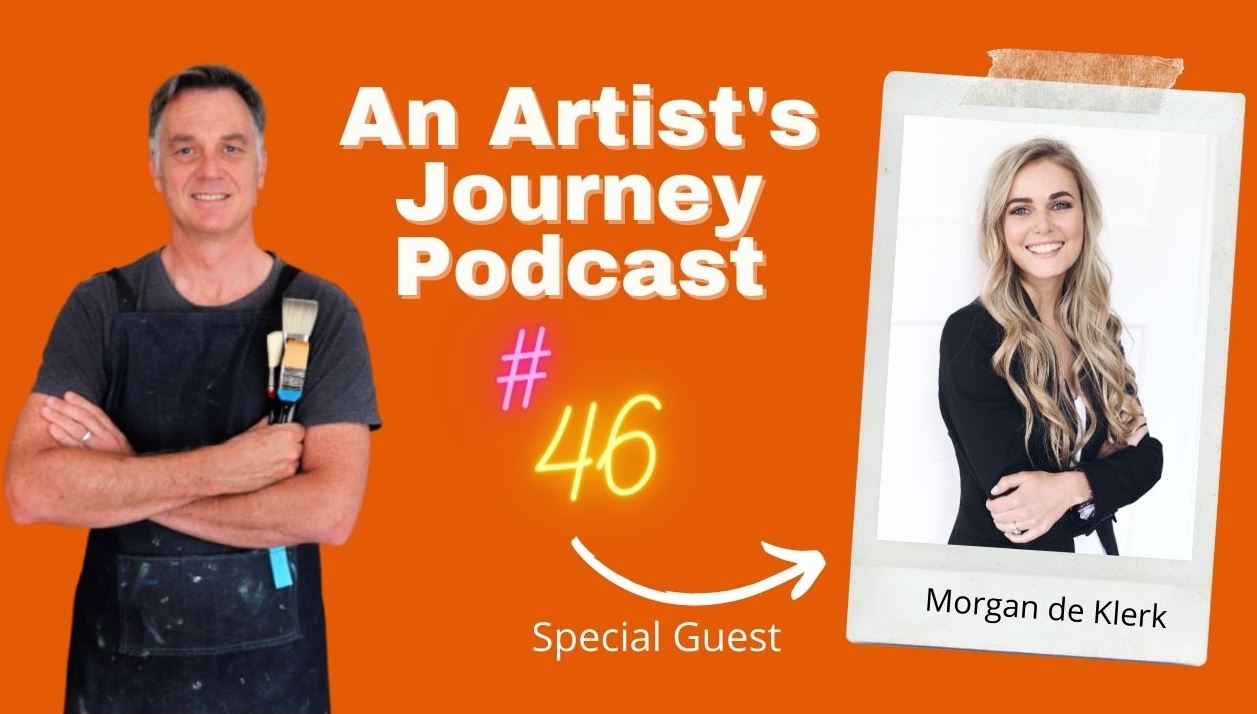


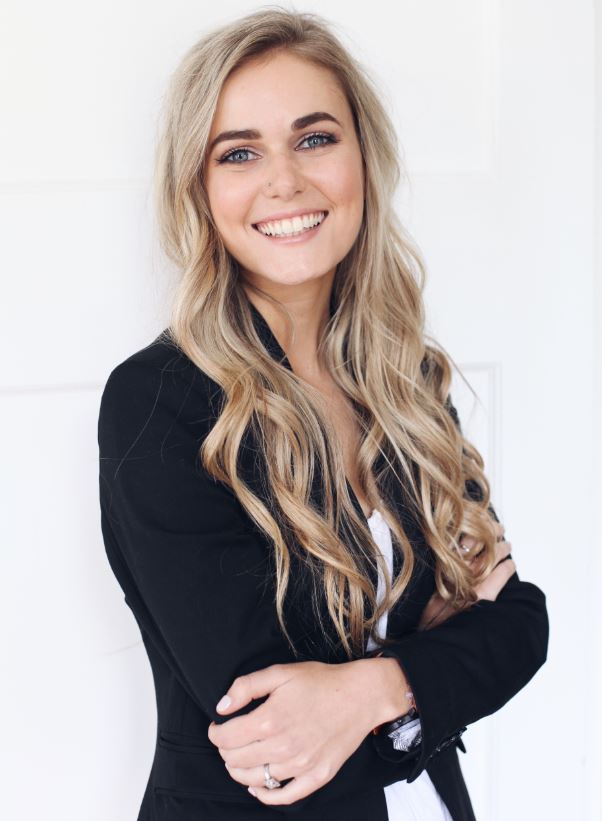
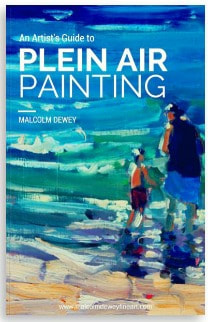
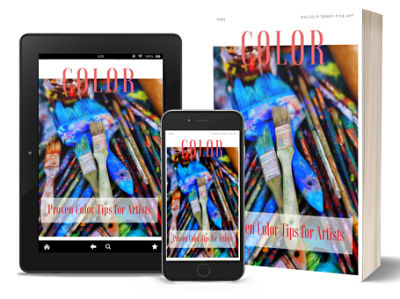
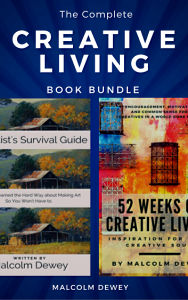
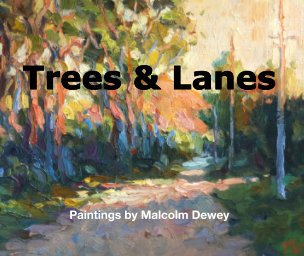




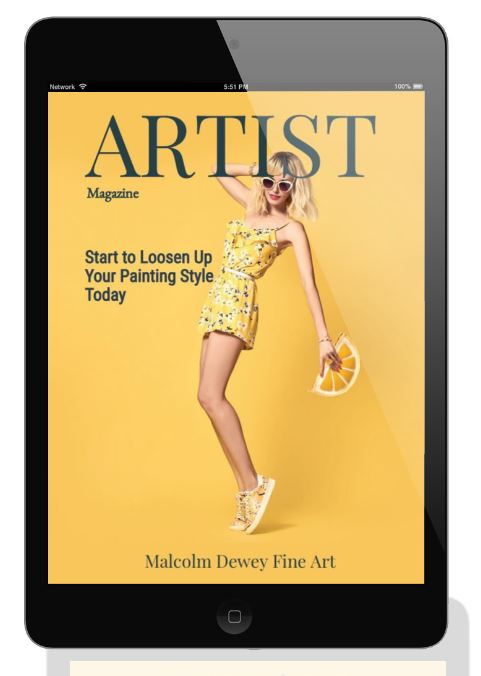
 RSS Feed
RSS Feed
